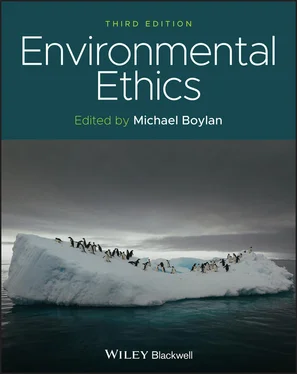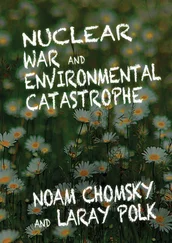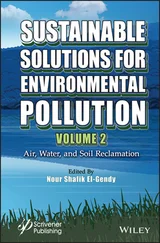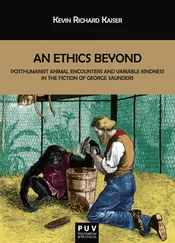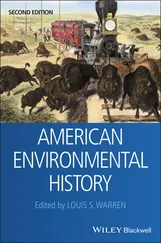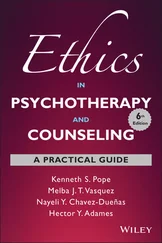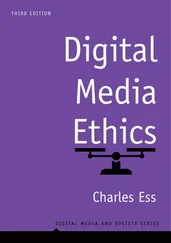Environmental Ethics
Здесь есть возможность читать онлайн «Environmental Ethics» — ознакомительный отрывок электронной книги совершенно бесплатно, а после прочтения отрывка купить полную версию. В некоторых случаях можно слушать аудио, скачать через торрент в формате fb2 и присутствует краткое содержание. Жанр: unrecognised, на английском языке. Описание произведения, (предисловие) а так же отзывы посетителей доступны на портале библиотеки ЛибКат.
- Название:Environmental Ethics
- Автор:
- Жанр:
- Год:неизвестен
- ISBN:нет данных
- Рейтинг книги:4 / 5. Голосов: 1
-
Избранное:Добавить в избранное
- Отзывы:
-
Ваша оценка:
- 80
- 1
- 2
- 3
- 4
- 5
Environmental Ethics: краткое содержание, описание и аннотация
Предлагаем к чтению аннотацию, описание, краткое содержание или предисловие (зависит от того, что написал сам автор книги «Environmental Ethics»). Если вы не нашли необходимую информацию о книге — напишите в комментариях, мы постараемся отыскать её.
Environmental Ethics,
Environmental Ethics
Environmental Ethics
Environmental Ethics — читать онлайн ознакомительный отрывок
Ниже представлен текст книги, разбитый по страницам. Система сохранения места последней прочитанной страницы, позволяет с удобством читать онлайн бесплатно книгу «Environmental Ethics», без необходимости каждый раз заново искать на чём Вы остановились. Поставьте закладку, и сможете в любой момент перейти на страницу, на которой закончили чтение.
Интервал:
Закладка:
Wilfred Beckerman, “‘Sustainable Development’: Is it a Useful Concept?” Environmental Values , 3 (1994): 191–209. Reprinted with permission.
Herman E. Daly, “On Wilfred Beckerman’s Critique of Sustainable Development,” Environmental Values , 4 (1995): 49–55. Reprinted with permission.
Steve Vanderheiden PSQUAD TO SUPPLY
Companion Website
The instructor’s material on the Companion Website: www.wiley.com/go/boylan/environmentalprovides the following to assist the professor in teaching the class:
A multi-step set of instructions on writing case study essays on the topics set out in the book. The essays are staggered so that they follow the progression of the text.
The culmination of the multi-step process is a “manifesto” which the student will write on solving or improving public policy on a particular area of environmental ethics that they find most important. This manifesto can also be shared via blog to the general public or as an epistle to their political representatives.
Further readings that might be useful to those wishing to continue their research beyond the essays presented in the book.
It is the hope of the editor that this Companion Website will provide added-value to instructors when presenting his or her course.
Thanks for choosing Environmental Ethics 3rd edition, for your course!
1 Ethical Reasoning
MICHAEL BOYLAN
What is the point of studying ethics? This is the critical question that will drive this chapter. Many people do not think about ethics as they make decisions in their day-to-day lives. They see problems and make decisions based upon practical criteria. Many see ethics as rather an affectation of personal taste. It is useful only when it can get you somewhere. Is this correct? Do we act ethically only when there is a win–win situation in which we can get what we want, and also appear to be an honorable, feeling, and caring person?
A Prudential Model of Decision-Making
In order to begin answering this question we must start by examining the way most of us make decisions. Everyone initiates the decision-making process with an established worldview. A worldview is a current personal consciousness that consists in one’s understanding of the facts and about the values in the world. It is the most primitive term to describe our factual and normative conceptions. This worldview may be one that we have chosen or it may be one that we passively accepted as we grew up in a particular culture. Sometimes, this worldview is wildly inconsistent. Sometimes, this worldview has gaping holes so that no answer can be generated. Sometimes, it is geared only to perceived self-interest. And sometimes, it is fanciful and can never be put into practice. Failures in one’s personal worldview model will lead to failures in decision-making.
One common worldview model in the Western world is that of celebrity fantasy. Under this worldview, being a celebrity is everything. Andy Warhol famously claimed that what Americans sought after most was “fifteen minutes of fame.” 1Under this worldview model we should strive to become a celebrity if only for a fleeting moment. What does it mean to be a celebrity? It is someone who is seen and recognized by a large number of people. Notice that this definition does not stipulate that once recognized the object is given positive assent. That would be to take an additional step. To be seen and recognized is enough. One can be a sinner or a saint—all the same. To be recognized is to be recognized. If this is the end, then it is probably easier to take the sinner route. In this way, the passion for celebrity is at heart contrary to ethics.
Another popular worldview model is one of practical competence. Under this model the practitioner strives to consider what is in his or her best interest and applies a practical cost–benefit analysis to various situations in order to ascertain whether action x or action y will maximize the greatest amount of pleasure for the agent (often described in terms of money). Thus, if you are Bernie Madoff (a well-known financial swindler) you might think about the risks and rewards of creating an illegal Ponzi scheme as opposed to creating a legitimate investment house that operates as other investment houses do. The risks of setting off on your own direction are that you might get caught and go to prison. The rewards are that you might make much more money than you would have done under the conventional investment house model. Since you think you are smarter than everyone else and will not get caught, the prudential model would say: “Go for it!” Madoff did get caught, but who knows how many others do not? We cannot know because they have not been caught . But even if you are not caught, is that the best worldview approach? The prudential model says yes.
Possible Ethical Additions to the Prudential Model
Some people, including this author, think that the prudential model is lacking. Something else is necessary in order have a well-functioning worldview by which we can commit purposive action (here understood to be the primary requirement of fulfilled human nature). We first have to accept that the construction of our worldview is within our control. What I suggest is a set of practical guidelines for the construction of our worldview: “All people must develop a single comprehensive and internally coherent worldview that is good and that we strive to act out in our daily lives.” I call this the personal worldview imperative. Now one’s personal worldview is a very basic concept. One’s personal worldview contains all that we hold good, true, and beautiful about existence in the world. There are four parts to the personal worldview imperative: completeness, coherence, connection to a theory of ethics, and practicality. Let us briefly say something about each.
First, completeness . Completeness is a formal term that refers to a theory being able to handle all cases put before it, and being able to determine an answer based upon the system’s recommendations. In this case, I think that the notion of the good will provides completeness to everyone who develops one. There are two senses of the good will. The first is the rational good will. The rational good will means that each agent will develop an understanding about what reason requires of one as we go about our business in the world. In the various domains in which we engage this may require the development of different sorts of skills. In the case of ethics, it would require engaging in a rationally-based philosophical ethics and abiding by what reason demands.
Another sort of goodwill is the affective good will. We are more than just rational machines. We have an affective nature too. Our feelings are important, but just as was the case with reason, some guidelines are in order. For ethics we begin with sympathy. Sympathy will be taken to be the emotional connection that one forms with other humans. This emotional connection must be one in which the parties are considered to be on a level basis. The sort of emotional connection I am talking about is open and between equals. It is not that of a superior “feeling sorry” for an inferior. It is my conjecture that those who engage in interactive human sympathy that is open and level will respond to another with care. Care is an action-guiding response that gives moral motivation to acting properly. Together sympathy, openness, and care constitute love.
When confronted with any novel situation one should utilize the two dimensions of the good will to generate a response. Because these two orientations act differently, it is possible that they may contradict each other. When this is the case, I would allot the tiebreaker to reason. Others, however, demur. 2Each reader should take a moment to think about his or her own response to such an occurrence.
Читать дальшеИнтервал:
Закладка:
Похожие книги на «Environmental Ethics»
Представляем Вашему вниманию похожие книги на «Environmental Ethics» списком для выбора. Мы отобрали схожую по названию и смыслу литературу в надежде предоставить читателям больше вариантов отыскать новые, интересные, ещё непрочитанные произведения.
Обсуждение, отзывы о книге «Environmental Ethics» и просто собственные мнения читателей. Оставьте ваши комментарии, напишите, что Вы думаете о произведении, его смысле или главных героях. Укажите что конкретно понравилось, а что нет, и почему Вы так считаете.
